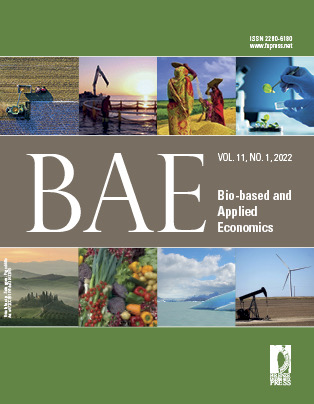Published 2022-07-20
Keywords
- quasi-experimental methods,
- policy evaluation,
- nutrition policy,
- assumptions
How to Cite
Abstract
We discuss the state-of-the-art in the application of quasi-experimental methods to estimate the impact of nutrition policies based on observational data. This field of application is less mature compared to other settings, especially labour and health policy, as food economists have started to implement widely counterfactual methods only over the last decade. We review the underlying assumptions behind the most prominent methods, when they can be regarded as credible and if/when they can be tested. We especially focus on the problem of dealing with unobserved confounding factors, emphasizing recent evidence on the limitations of propensity score methods, and the hard task of convincing reviewers about the quality of instrumental variables. We discuss the application of Difference-in-Difference, with an emphasis on its potential in consumer panel data applications, and how results from Regression Discontinuity Design studies should be interpreted. Finally, we cover the estimation of counterfactual outcomes using structural methods and provide an overview of recent developments and current gaps.







